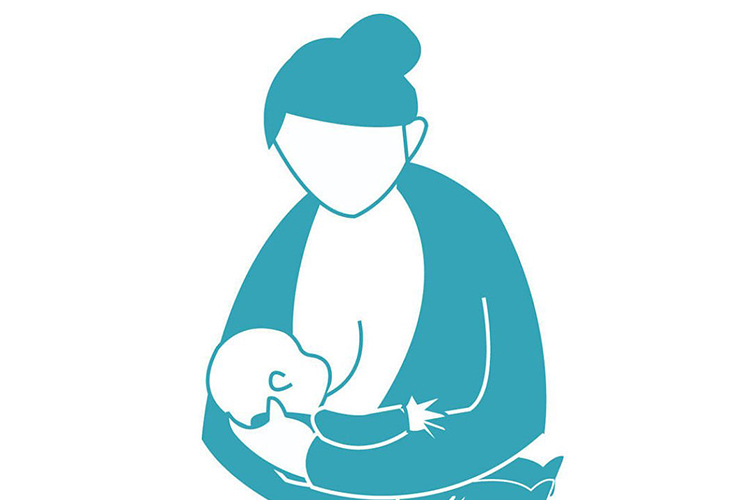Latch On Study: Reduced breastfeeding among mothers with overweight or obesity can be significantly increased
Posted 14 February, 2024

Breastfeeding rates amongst women with overweight or obesity can be increased by providing education and support, according to new research.
Irish breastfeeding rates are amongst the lowest worldwide, with only 44% of Irish newborns receive breastmilk only on discharge from maternity services, and some groups of women appear more vulnerable than others to not breastfeeding.
These include those with diabetes in pregnancy, women with overweight or obesity, and women from poorer backgrounds.
A new study (opens in a new window)published in British Journal of Obstetrics and Gynaecology addressing the barriers to breastfeeding experienced by these women has found that through education and support intervention, breastfeeding rates in women with overweight or obesity can be significantly increased.
The Latch On Study was a randomised controlled trial carried out by the UCD Perinatal Research Centre at the National Maternity Hospital and three other Irish hospitals, Wexford General Hospital, St Luke’s General Hospital, Kilkenny and Midland Regional Hospital Mullingar.
It was designed to evaluate the effectiveness of a multicomponent breastfeeding education and support intervention in women with overweight or obesity, and enrolled 225 first time mothers with a BMI of 25 or higher.
These women were randomly assigned to either the multicomponent intervention group, or a control group that received the normal lactation support provided to all women attending the maternity hospitals for the birth of their babies.
The study found that at three months postpartum, breastfeeding rates were 68.7% in the intervention group and 62.1% in the control group.
While this difference was not statistically significant, proving that multicomponent intervention is not more effective than the usual care, both groups had significantly higher breastfeeding rates than the national average – which sees only 4 out of 10 women with overweight or obesity breastfeeding.
The study also found women in the control group accessed significantly more private lactation support than the intervention group, suggesting that when a woman is motivated to breastfeed, they will seek the support they need.
“Our results highlight the importance of providing comprehensive education and support to women who intend to breastfeed, regardless of whether they participate in a formal intervention,” said (opens in a new window)Associate Professor Sharleen O’Reilly, Registered Dietitian and lead author.
(opens in a new window)Professor Fionnuala McAuliffe, Consultant Obstetrician and senior author added: “Women living with obesity and overweight can achieve really positive breastfeeding outcomes - our rates of breastfeeding at three months were higher than the Irish average.”
The study’s findings have important implications for healthcare providers and policymakers, and suggest that all women should be encouraged to breastfeed and be offered comprehensive education and support.
In terms of maternal health, breastfeeding is associated with supporting women to better heart health, better pregnancy spacing, and a lower risk of breast cancer and diabetes later in life.
For infant health, breastfeeding is associated with less sudden infant death syndrome (SIDS) and inner ear infections, and less obesity and type 2 diabetes when they are older.
By: David Kearns, Digital Journalist / Media Officer, UCD University Relations
To contact the UCD News & Content Team, email: newsdesk@ucd.ie
UCD academics on The Conversation
- Opinion: The leap year is February 29, not December 32 due to a Roman calendar quirk – and fastidious medieval monks
- Opinion: Nigeria’s ban on alcohol sold in small sachets will help tackle underage drinking
- Opinion: Nostalgia in politics - Pan-European study sheds light on how (and why) parties appeal to the past in their election campaigns






